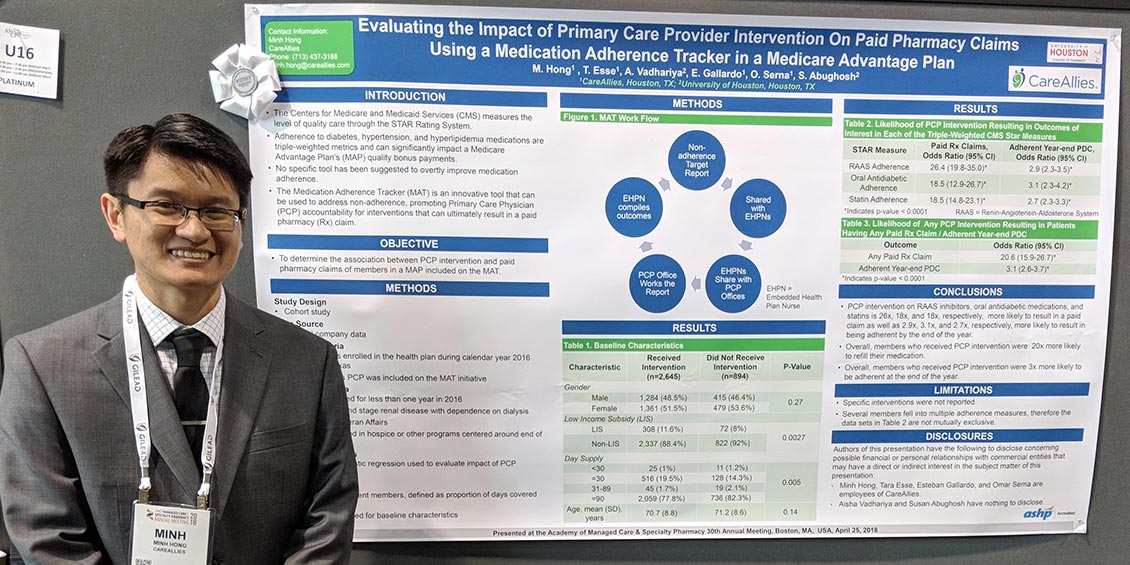Alumni News

Platinum Presentation
Alumnus Hong Earns Top AMCP Meeting Medal, Podium Invitation for Study Showing Benefits of Intervention, Medication Adherence Tracker
A collaboration between clinical/managed care pharmacy and pharmaceutical health outcomes and policy researchers with deep ties to UH College of Pharmacy has been recognized as a coveted Platinum Medal abstract by the Academy of Managed Care Pharmacy.
The project, "Evaluating the Impact of Primary Care Provider Intervention on Paid Pharmacy Claims Using a Medication Adherence Tracker in a Medicare Advantage Plan," was led by UHCOP alumnus Minh Hong, Pharm.D., clinical pharmacy resident at CareAllies.
Coauthors of the project were fellow alumni and CareAllies colleagues Tara Esse, Pharm.D. ('09), clinical program manager, Esteban Gallardo, Pharm.D. ('11), clinical pharmacist, and Omar Serna, Pharm.D. ('08), BCACP, Clinical Operations manager; UHCOP Pharmaceutical Health Outcomes and Policy Ph.D. student Aisha Vadhariya; and UHCOP faculty member Susan Abughosh, Ph.D.
In addition to being honored with one of only three Platinum Medals awarded, Hong was invited to deliver the project in a podium presentation at the AMCP Managed Care & Specialty Pharmacy Annual Meeting April 23-26 in Boston.
The abstract also was published in a special supplement of the April 2018 issue of the Journal of Managed Care Pharmacy (page S17). The project involved the use of a medication adherence tracker to assist in monitoring primary care physician interventions in coordination with health plan pharmacists and nurses for paid prescription claims and patient medication adherence. The study found paid claims were 20 percent higher for those who received vs. those who did not receive PCP intervention. In addition, patient who received intervention were three times as likely to be adherent one year later than those who did not receive intervention.